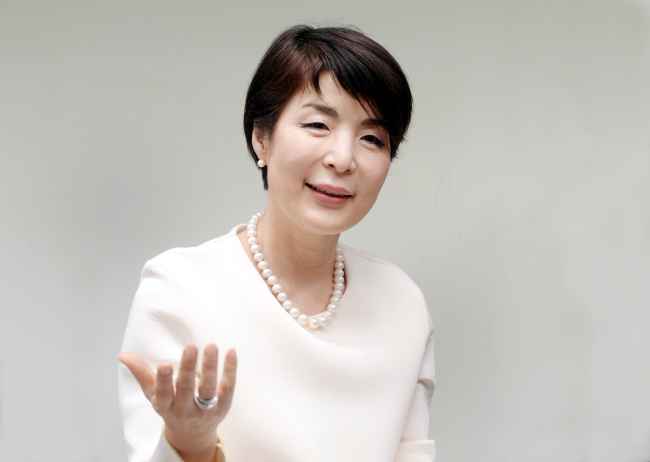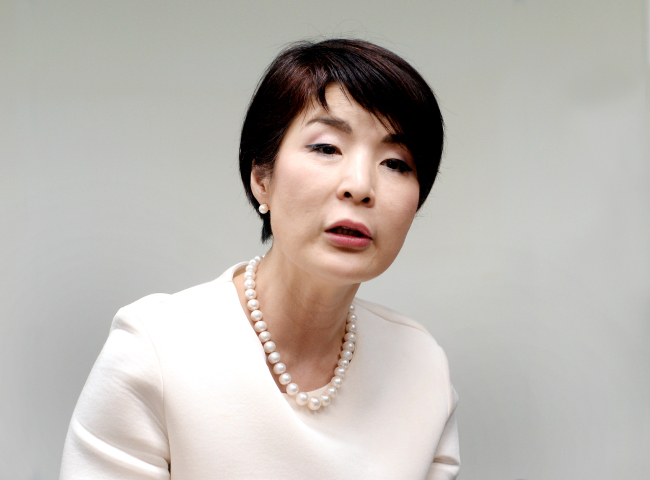koreaherald.com
After basking in its peak years, the relationship between South Korea and China has been going downhill rapidly in recent months, as Beijing embarks on economic retaliation over Seoul’s decision to host the US’ Terminal High Altitude Area Defense missile shield.
Concerns are growing the diplomatic strains may spill over into sociocultural and people-to-people exchanges between the two countries despite their deepening economic interdependence. Alarming signs have already surfaced from both sides, with some companies tabling investment plans, Hallyu exports dwindling and many tourists altering their itineraries in favor of other destinations.
But in the eyes of Park Euna, ambassador for public diplomacy at the Foreign Ministry, now is time for Seoul to step up efforts to reach out to citizens of not only China but other countries around the world, helping promote their understanding of and eventually reach its foreign policy goals.
“South Korea and China had so far been building a quite strong bond through public diplomacy and people-to-people and cultural exchanges alike. But in a system like that of China, everything could be swallowed up with a single instruction from the top,” she said in a recent interview with The Korea Herald.
“But the strains would not endure for so long, and at some point the two countries should move to find a way out -- and that’s where public diplomacy could chime in and provide the biggest groundwork and impetus.”
In diplomatic circles here, she is seen as an icon for public diplomacy herself, winning regard for her eye for fashion, command of multiple languages and distinct sociability. Within the ministry, she is a role model for many up-and-coming female diplomats seeking to learn from her shrewd judgment and job execution.
This year, the ministry set aside 15 billion won ($13.2 million) for public diplomacy, up about 5.6 percent from a year ago and 2.5-fold that of 2013. The funds are intended to bankroll overseas cultural events, scholarships for next-generation Korean studies researchers and other programs with academia and civic groups.
Despite the increasing needs and budgets, Seoul’s public diplomacy spending remains far behind other major and similar-sized economies. For example, the Japan Foundation, the main driver of Tokyo’s public diplomacy machine, operates with more than 32 billion yen ($283.5 million) a year, more than five times the Korea Foundation’s 2017 budget.
“Public diplomacy has no boundaries,” Park said. “But we have not made sufficient investment in smart, soft power relative to our hard power, though there’s no country in the world that needs more influence and policy support than South Korea given our territorial division and standoff with the North.
“In our path to unification, we cannot move forward without the trust and consensus that a unified Korea is not against others’ interests but only beneficial. And public diplomacy is key to drawing that common picture.”
 |
| Park Euna, ambassador for public diplomacy at the Foreign Ministry. (Park Hyun-koo/The Korea Herald) |
“But the strains would not endure for so long, and at some point the two countries should move to find a way out -- and that’s where public diplomacy could chime in and provide the biggest groundwork and impetus.”
Likewise, the formula may be applicable for other relationships, especially ones that involve checkered history and potentially explosive sources of contention such as with the US and Japan.
The envoy, however, stresses the significance of two-way efforts to prevent the foundation of the ties from wearing thin under any circumstances.
“It’s vital that one particular issue must not shake the relations to the core nor dent the fundamental trust,” she said.
“With Japan, for instance, despite historical legacy issues, the sides make joint public diplomacy efforts based on the shared principle for a forward-looking partnership, while with China they need to work together to explore how to ensure the feelings and trust between the two peoples should not be hurt in the future, taking lessons from the THAAD aftermath.”
Park, 55, assumed the job in February after spending three years as a minister at the South Korean Embassy in Beijing. Since joining the ministry in 1985, she has been serving in other key posts, including director-general for development cooperation, minister-counsellor at the mission to the UN and director for regional trade cooperation.
 |
| Park Euna, ambassador for public diplomacy at the Foreign Ministry. (Park Hyun-koo/The Korea Herald) |
By Shin Hyon-hee (heeshin@heraldcorp.com)
No comments:
Post a Comment